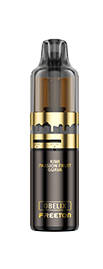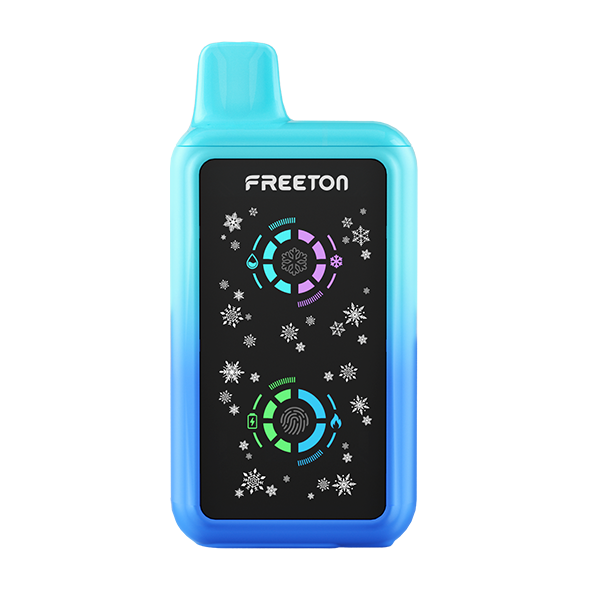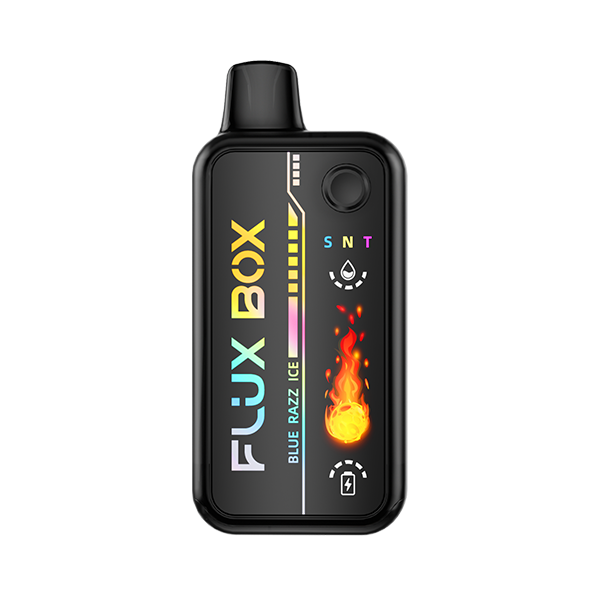
Vaping has become a popular pastime for many people, but there are some misconceptions about what it means to vape. While it has its benefits over smoking cigarettes, vaping is not completely safe. Here's everything you need to know about the pros and cons of vaping: It depends on the person. If you're a smoker […]
Vaping has become a popular pastime for many people, but there are some misconceptions about what it means to vape. While it has its benefits over smoking cigarettes, vaping is not completely safe. Here's everything you need to know about the pros and cons of vaping:
It depends on the person.
If you're a smoker and you're thinking about trying vaping, there are some things you should know. First off, vaping isn't for everyone. If you think it will help you quit smoking or if you want to switch over because it's healthier than smoking cigarettes--and therefore better for your health--that might not be true for everyone. Some people have higher risks of developing lung disease or heart disease than others when they vape; so if any of those conditions run in your family history (or if they apply directly), then maybe vaping isn't the best option for them either.
And second: there's still a lot we don't know about long-term effects on health from e-cigarettes compared to traditional cigarettes (or other forms of nicotine delivery). So far research hasn't found any definitive answers as far as whether or not these products could cause cancer or other diseases down the road; however most studies show that switching from tobacco products like cigarettes will lower risk factors associated with those diseases significantly over time!

Vaping is considered a healthier alternative to smoking cigarettes.
Vaping is considered a healthier alternative to smoking cigarettes. Smoking is linked to many diseases and conditions, including heart disease, stroke, lung cancer and emphysema. Vaping does not cause the same health problems as smoking because it doesn't contain tobacco or tar (a substance made up of chemicals produced by burning tobacco).
Vaping has been found to be less harmful than smoking cigarettes because it contains fewer toxic substances such as carbon monoxide and tar. In fact, some experts believe that vaping could be beneficial for those who want to quit smoking but aren't ready yet because they enjoy the act of holding something in their hands while they inhale vaporized liquids into their lungs through an e-cigarette device known as a "vape pen" or "mod".
Vaping is more visually appealing than smoking.
One of the biggest differences between vaping and smoking is the visual appeal. Smoking is a very unappealing habit, but vaping isn't as offensive to look at. It's more like a party trick than something you'd do in public because it doesn't leave an odor behind or make you look like you're doing something bad.
Vaping doesn't leave a lingering smell.
Vaping does not leave a lingering smell like cigarette smoke does. This is an important advantage of vaping, because it's less offensive to others. If you're trying to quit smoking and don't want your friends or family members to know about it, vaping may be the best option for you.
The vapor from vaping dissipates quickly, unlike secondhand smoke from cigarettes, which lingers for hours.
Vaping is not as offensive to others.
The vapor from e-cigarettes dissipates quickly, unlike secondhand smoke from cigarettes, which lingers for hours. This means that if you're vaping in a public place (like an office or restaurant), the smell won't be nearly as noticeable to other people around you. And if it is noticeable--say, because of its fruity flavor--it will likely be considered less offensive than cigarette smoke by most people who are sensitive to smells (and even some nonsensitive ones).
Secondhand smoke can cause health problems like asthma attacks in children and heart disease or stroke in adults; research has shown that secondhand vapor poses no risk at all!
Vaping is safer than smoking because it doesn't release toxic chemicals into the air or burn your skin or lungs
Vaping is not safe. While you may be inhaling fewer toxins than when you smoke cigarettes, vaping still releases a number of chemicals into the air that can cause health problems. The vapor from e-cigarettes has been shown to irritate the lungs and throat as well as cause coughing and wheezing in users who have asthma, according to research published by the American Journal of Respiratory and Critical Care Medicine in 2016. It's also possible that secondhand exposure from vaping could affect children whose immune systems are still developing (this hasn't been studied yet). There's some evidence that e-cigarettes might make it easier for young people to start smoking traditional tobacco products later on--but this doesn't mean that vaping itself is worse for your health than traditional tobacco use!
The primary difference between vaping and smoking is the devices used.
Vaping is more efficient than smoking.
A vaporizer uses a battery-powered device to heat up e-liquids, which creates a vapor that you inhales instead of smoke. The process involves heating up the liquid to its boiling point before it turns into vapor, so there's no burning involved in vaping--just heating up the contents until they turn into gas without actually combusting them. This means that when you vape, your lungs are only exposed to non-toxic chemicals found in your chosen e-liquid (which we'll talk about later).
In contrast, cigarettes burn tobacco leaves at high temperatures and produce tar as well as other harmful substances like carbon monoxide and ammonia through combustion processes within each puff on your cigarette (or cigar or pipe).
Vaping does not depend on burning tobacco or other plant material to get the nicotine that smokers crave, so it does not produce smoke like cigarettes do.
Disposable vapes does not depend on burning tobacco or other plant material to get the nicotine that smokers crave, so it does not produce smoke like cigarettes do. Instead, vaping uses a battery to heat the e-liquid in an electronic cigarette (e-cig) and turn it into vapor that you inhale through the mouthpiece. Because no combustion occurs in this process, there are no toxic chemicals released into your lungs during inhalation.
However, just because e-cigs don't burn anything doesn't mean they're completely harmless: The FDA has warned that some brands contain harmful ingredients like diacetyl (a chemical associated with lung disease) and metals like nickel and lead--and research is still being conducted on how much risk these pose over time. Additionally, studies have shown some e-liquids contain formaldehyde--though whether or not this poses health risks depends on how much formaldehyde gets into your bloodstream when vaping versus smoking cigarettes (which also contains small amounts).
While it is true that there are fewer toxins in vaping than cigarette smoke, that doesn't mean there are no risks associated with vaping.
While it is true that there are fewer toxins in vaping than cigarette smoke, that doesn't mean there are no risks associated with vaping. In fact, there are some serious health concerns associated with e-cigarettes.
Vaping has been linked to an increased risk of heart disease and stroke, as well as a decreased lung function. It can also cause cancerous tumors in the mouth and throat--and even lead to oral lesions if you use your e-cigarette without a filter or mouthpiece cover (which should be standard practice anyway).
The bottom line? Vaping isn't safe for your body. While research continues on how much nicotine is actually absorbed through vaping versus traditional smoking methods, we know enough now to say that it's best not to take any chances when it comes to your overall health and wellness--or even just trying something new for fun!
There are risks associated with vaping, but they are less than those associated with smoking cigarettes
While it's true that vaping is not completely safe, it is less harmful than smoking cigarettes. To put it simply: the risks of vaping are far lower than those associated with smoking tobacco products.
For example, a study published in the journal Tobacco Control found that e-cigarettes may be up to 95% less harmful than traditional tobacco products like cigarettes and cigars. And another study published in JAMA Pediatrics found that teens who use e-cigarettes were at an increased risk for trying traditional cigarettes later on (as opposed to teens who didn't vape).
However, there are still some concerns about whether or not vaping will lead to long-term health problems down the road--including cancer--and so we don't recommend using this device if you're under 18 years old or if you have certain medical conditions such as asthma or allergies
Conclusion
We hope that you now have a better understanding of how vaping compares to smoking and why it's considered a healthier alternative. While there are many benefits to vaping, we also know that it can be harmful if used incorrectly. It's important that users understand these differences so they can make informed decisions about their health!






























